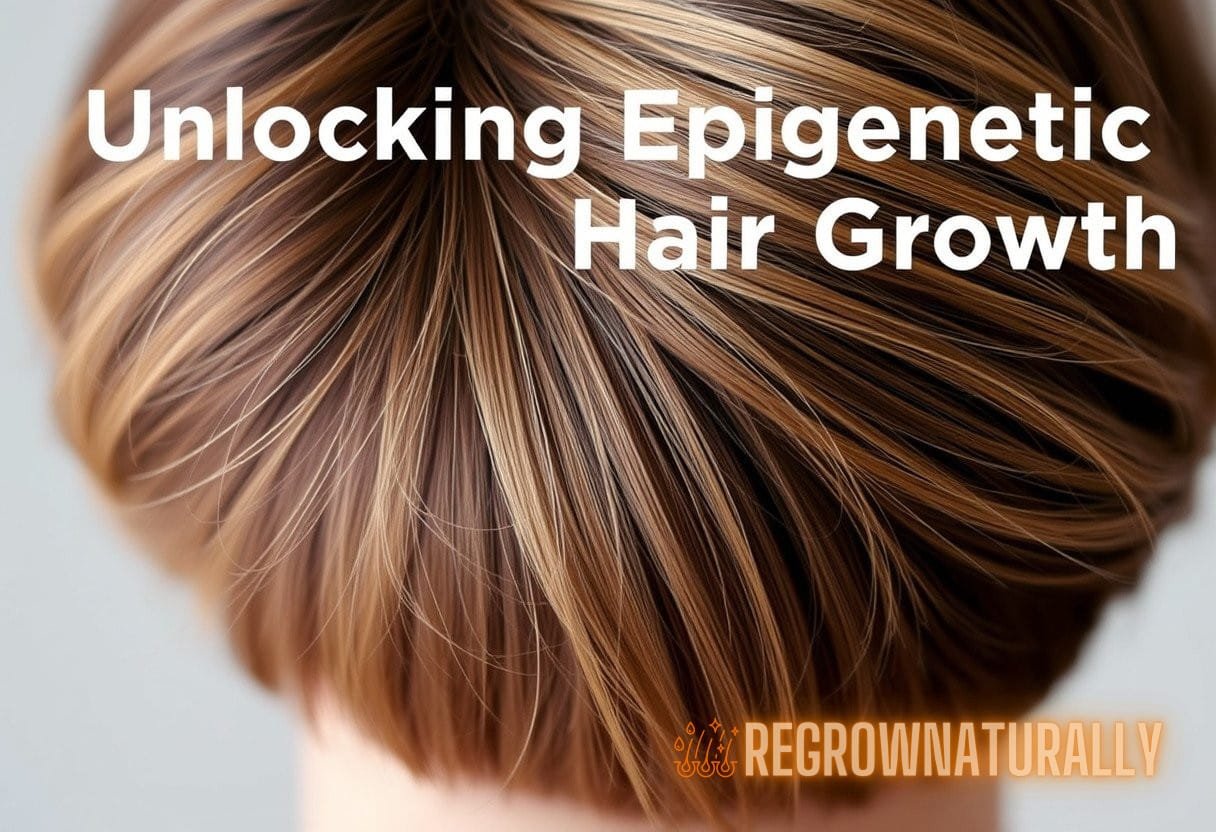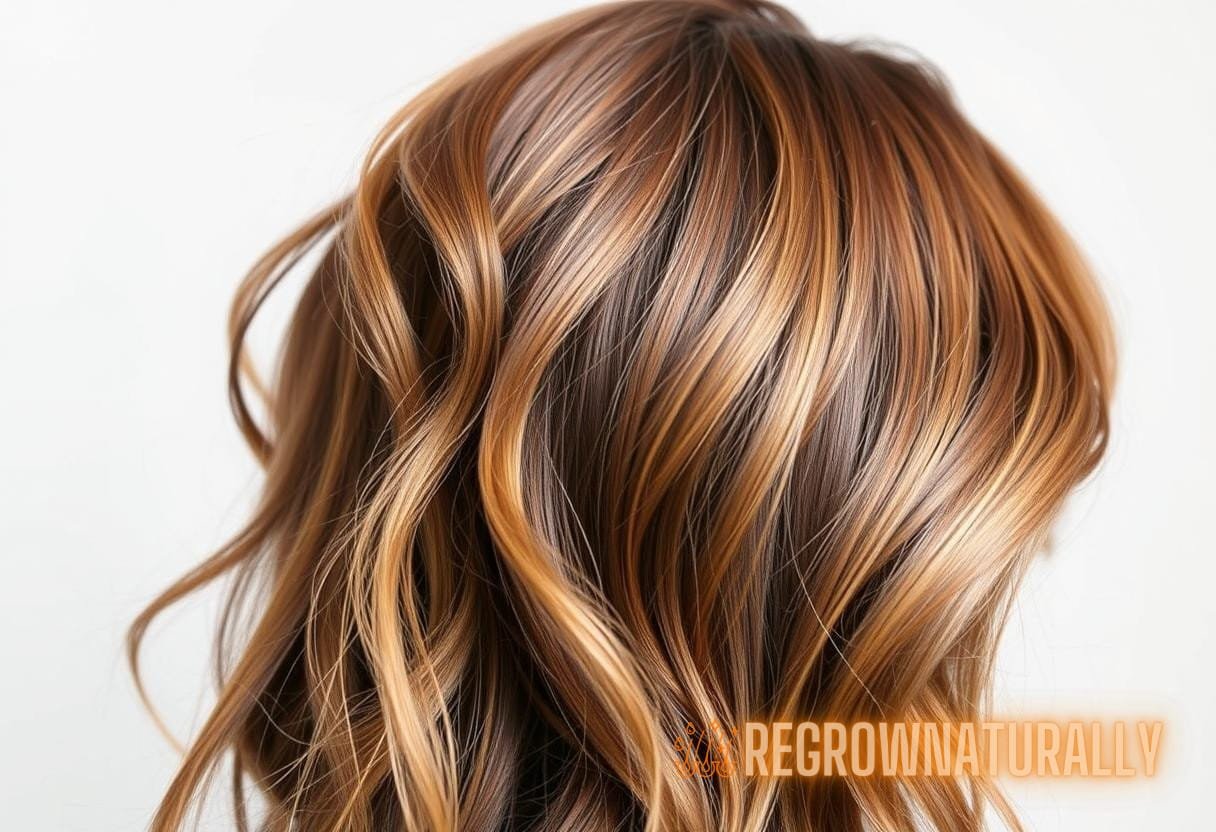Unlocking the Genetic Code: Exploring Epigenetic DIY Hair Growth Strategies for Lasting Results
In recent years, the field of genetics and epigenetics has captured public fascination, especially in the realm of hair growth. Understanding the nuances of epigenetic hair growth opens avenues for effective DIY treatments that can lead to lasting results. In
The Science of Hair Growth and Genetics
Hair growth is a complex biological process influenced by a myriad of factors, including genetics, hormones, and environmental conditions. The genetic code for hair follicles is present in every human cell; however, epigenetics plays a crucial role in regulating the expression of these genes. Activating or suppressing certain genes via epigenetic mechanisms can either promote or hinder hair growth.
Understanding Epigenetics
Epigenetics refers to the heritable changes in gene expression that do not involve alterations to the underlying DNA sequence. These changes can result from various factors, including:
- Diet
- Stress levels
- Environmental toxins
- Physical activity
For instance, studies have shown that a diet rich in specific nutrients can favorably influence the expression of genes associated with hair growth. In particular, vitamins and minerals such as Biotin, Zinc, and Vitamin D have been identified as key players.
Impact of Lifestyle Choices on Epigenetic Hair Growth
Several lifestyle modifications can significantly influence epigenetic hair growth. Here are some strategies that can be easily incorporated into your daily routine:
Dietary Changes
A balanced diet packed with essential vitamins and minerals is crucial for promoting hair growth. Incorporate the following foods into your diet:
- Leafy Greens: These are high in Vitamin A and iron, both of which are essential for healthy hair.
- Fish: Rich in omega-3 fatty acids, fish can enhance scalp health and hair density.
- Nuts and Seeds: Almonds and walnuts provide Vitamin E, which can prevent oxidative stress in hair follicles.
- Eggs: High in protein and biotin, eggs are vital for keratin production.
These foods positively affect the expression of genes involved in hair growth by providing necessary nutrients that epigenetically influence gene regulation.
Stress Management
High-stress levels can lead to hair loss through a process known as telogen effluvium, where stress pushes hair follicles into a resting phase. Effective stress management techniques include:
- Meditation and Mindfulness: Practices that reduce stress hormones can positively affect hair growth.
- Yoga: This physical activity combines movement with breath control, helping to reduce stress levels.
- Regular Exercise: Engaging in aerobic activities can enhance blood circulation and promote nutrient delivery to hair follicles.
By managing stress, you can potentially upregulate the expression of growth-promoting genes.
Environmental Considerations
Exposure to environmental toxins can adversely impact hair growth. To promote a healthy environment for hair, consider the following:
- Limit exposure to pollutants by using air purifiers and avoiding heavily polluted areas.
- Use natural hair care products free from harmful chemicals that may disrupt your scalp’s natural ecosystem.
By minimizing external stressors, you can enhance the epigenetic environment for hair follicles and facilitate their growth.
DIY Treatments Supported by Epigenetic Studies
The rising popularity of DIY treatments has led to the development of numerous at-home remedies for hair growth. Below, we explore some effective methods endorsed by scientific research.

Essential Oils
Essential oils not only provide pleasant fragrances but also are known for their potential in epigenetic hair growth. Consider the following options:
- Rosemary Oil: This oil is believed to increase blood circulation to the scalp, thereby enhancing hair growth through the upregulation of specific genes.
- Lavender Oil: Known for its relaxing properties, lavender oil also demonstrated efficacy in promoting hair growth in a study where participants noted improvement after regular use.
To use, mix 2-3 drops of essential oil with a carrier oil like coconut or jojoba oil and massage into the scalp.
Scalp Massages
Regular scalp massages can enhance blood flow to hair follicles, promoting nutrient delivery and encouraging hair growth. Here are some techniques:
- Use your fingertips to massage the scalp in circular motions for at least 5 minutes daily.
- Consider using a specialized scalp massager to improve blood circulation further.
Studies indicate that increased circulation can epigenetically enhance the expression of genes related to hair growth.
Homemade Hair Masks
Creating hair masks from natural ingredients can provide your scalp with essential nutrients. Some effective masks include:
- Aloe Vera: Its antioxidant properties may protect hair cells while providing hydration.
- Coconut Oil: Rich in lauric acid, this oil penetrates the hair shaft and may improve overall scalp health.
Apply these masks weekly, leaving them on for 30 minutes before rinsing to reap the benefits.
Herbal Infusions
Herbs such as ginseng and saw palmetto are known for their potent hair growth properties. Create a herbal infusion by:
- Boiling herbs in water, allowing them to steep, and using the cooled solution as a final rinse after shampooing.
- Applying herbal oils to your scalp to enhance the effects.
The active compounds in these herbs can interact with follicle receptor sites, potentially affecting epigenetic hair growth.
Applying the Science: Case Studies and Statistics
Real-world applications of epigenetic hair growth strategies have yielded compelling results. For example, a clinical trial involving rosemary oil and its effects on androgenetic alopecia (pattern hair loss) demonstrated significant improvements. In this study, 84 participants experienced a notable increase in hair count after 6 months of regular oil application.
Furthermore, a systematic review published in the Journal of Dermatology noted that herbal treatments, including saw palmetto and pumpkin seed oil, have been associated with positive hair growth results. Participants reported increases in hair density and overall scalp health, exemplifying how epigenetic hair growth can be achieved naturally.
Importance of Consistency and Patience
While DIY treatments rooted in epigenetic hair growth sound promising, consistency is key. Hair growth is a slow process, typically averaging half an inch per month. Thus, maintaining a regular routine of dietary changes, scalp massages, and topical applications is vital for achieving desired results.
Set realistic expectations and understand that epigenetic changes can take time to manifest. Incorporate these strategies into your lifestyle, and document the results over several months to assess their effectiveness.
Conclusion
Incorporating epigenetic hair growth strategies into your daily routine offers a holistic approach to hair health. By understanding the underlying mechanisms and actively managing lifestyle factors, individuals can unlock their genetic potential for hair growth through DIY treatments. While individual responses may vary, a commitment to these practices may lead to lasting improvements.



